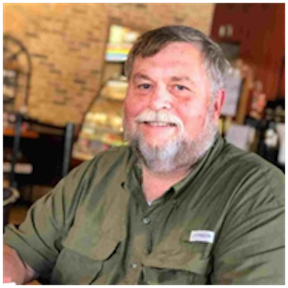Johnny Nelson – guest columnist 9/16/2014
Published 12:00 am Tuesday, September 16, 2014
Will Scots vote with heads or hearts in Thursday’s referendum?
If one can accept the premise that a person could be transported back in time 200 years, the “Outlander,” a new series on the Starz Network, is pretty good entertainment. In it, an English woman who has just finished a stint as a British army nurse during WWII suddenly finds herself among the wild McKenzie clan during the tumultuous times leading up to the battle of Culloden Moor in 1746.
The battle was a disaster for Scottish forces and marked the last attempt to restore Scotland’s own House of Stewart (Stuart) to the throne of the United Kingdom. It was the last full scale battle on British soil, and after Culloden, the English systematically set out to weaken Gaelic culture and to destroy the power of the highland clans. The wearing of tartans was forbidden, Scottish estates were forfeited, and chieftains were imprisoned and some executed.
This period is of interest to me since the purge prompted an ancestor, John Fraser, to catch a ship bound for Boston. Several hundred Frasers fought at Culloden, and over 200 were killed. Their leader Lord Simon Fraser was imprisoned, tried for treason and executed in the Tower of London. It’s no wonder that John Fraser (generally spelled Frazier in America) decided it was a good time to get out of town.
Culloden Moor might have been the last pitched battle between England and Scotland, but the subsequent union has not been exactly peaceful. Resentful Scotsmen will tell you that whether the nation is called Great Britain or the United Kingdom, the English in London pull the strings. There has always been a strong minority advocating the re-establishment of an independent Scotland, and in the last decades, the Scottish National Party (SNP) has steadily gained strength.
I had some personal contact with Scottish separatists in November of 1978 when I flew into Edinburg to join a large crude oil tanker coming in to load North Sea oil at a terminal on the Firth of Forth, the estuary where the river Forth flows into the North Sea. When the ship’s agent met me at the airport, he informed me that the ship would be several days late and that he had booked me a room at the Hawes Inn which was on the Firth and not far from the terminal.
At first sight, the Hawes Inn, whose origins date back to the 1600s, made me think of the fictional Admiral Benbow Inn from “Treasure Island.” And it turned out that there was a connection since in 1886 Robert Louis Stevenson was staying in Room 13 when he began writing “Kidnapped,” a novel set in Scotland after Culloden.
It was that night in the pub that I met Allan Stewart, and the name seemed so appropriate to me at the time since Allan Breck Stewart was the name of the lovable Scottish rogue in “Kidnapped.” Allan struck up a conversation with me after learning that my ship was coming in to load North Sea crude since this commodity has strengthened the position of those believing that Scotland should be economically self sufficient.
Before oil, separatists had placed a lot of stock in Scotch whiskey, one of the highest taxed commodities in the British Isles. This revenue goes to London, and some amount of it flows back to Scotland.
Separatists have maintained that whiskey taxes, if kept at home, could go a long way toward supporting an independent Scotland. The discovery of lucrative oil reserves off Scotland’s northeast coast has further encouraged those advocating independence.
Over the following days, I spent considerable time with Allan and some of his friends who were all members of the SNP. They were well versed in the history of the British Isles, and it was interesting to hear their take on things. They also showed me interesting sites around Edinburg that I would not have found on my own.
I’ll be thinking about Allan this weekend as Scotland votes on whether to sever a more than 300-year-old alliance with the rest of the U. K. He was about 15 years older than I, so he might still be around, and if he is, he will be all fired up and out in the street with his cronies urging a yes vote for independence.
It’s interesting that polling now indicates that the comfortable lead held by the no vote side just last month has dwindled, and the pro-independence crowd seems to be gaining strength. No one seems sure of how the referendum will turn out, but there remains some confidence that cooler heads will prevail when voters really consider such difficulties as establishing an independent banking system.
But centuries of strife between England and Scotland have left some raw emotions, and the Gaelic folks are strong on emotion. Some might say that they are as likely to follow their hearts as their heads. And Scottish literature with such works as novels by Walter Scot and poems by Robert Burns have some great inspiration for the heart.
Some undecided voters could even be influenced by the more recent American movie, “Braveheart.” On the way to the polls they might just picture Mel Gibson portraying William Wallace. There in the Tower facing an imminent and painful death, Wallace had the strength for a final yell of “FREEDOM!”
(Johnny Nelson is a 1961 Batesville High School graduate, a 1965 of the U. S. Merchant Marine Academy and now a retired seaman whose columns occasionally appear on these pages)





